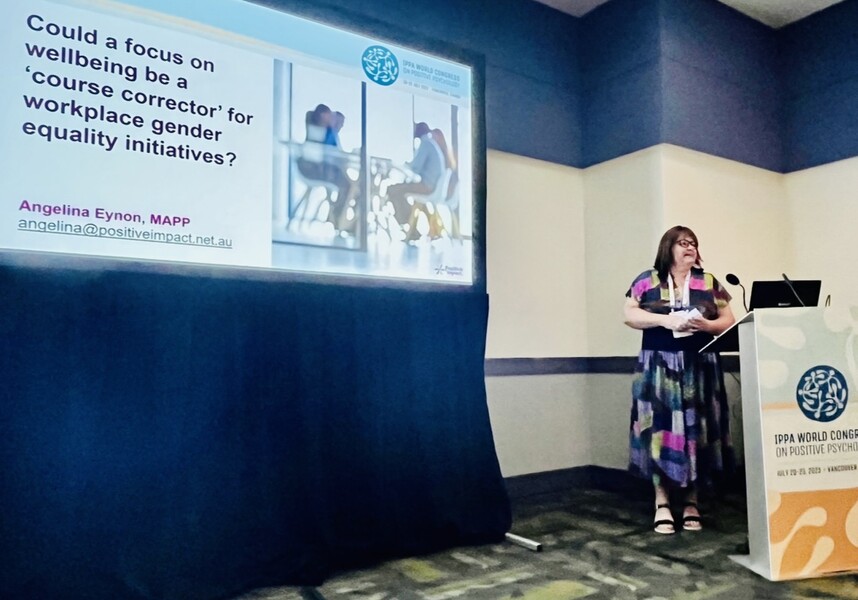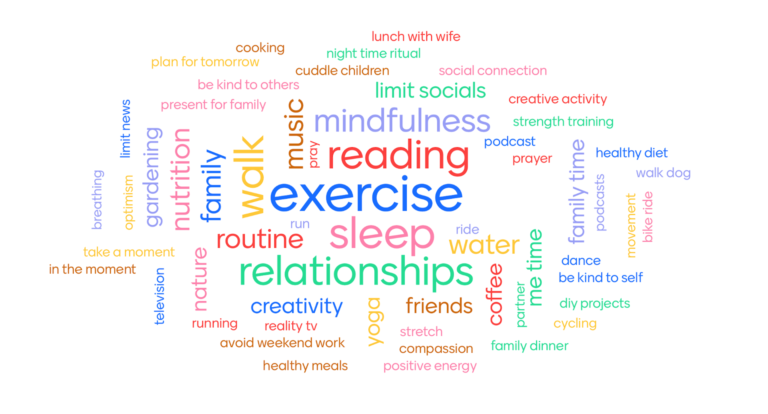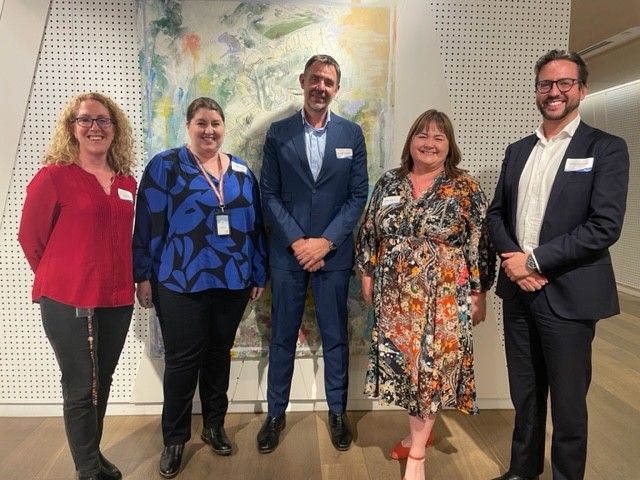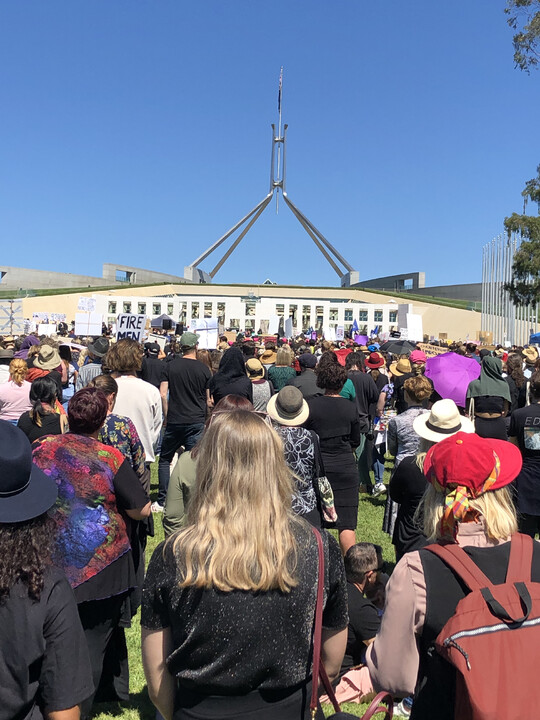My learning from IPPA World Congress 2023
“Could a focus on wellbeing be a course corrector for workplace gender equality initiatives” My presentation at IPPA.
It’s taken me some weeks to recalibrate and collect my thoughts after the IPPA (International Positive Psychology Association) World Congress. The Congress was held in Vancouver, Canada from Thursday to Sunday July 20-23rd. It included full and half day masterclasses pre and post the conference, and the conference itself included invited keynotes/panels and symposiums, as well as peer-reviewed podium, apply and ignite sessions. A full program can be found here.
My three main reflections coming away from the world congress were:
- I am excited by the growth in depth and breadth of Positive Psychology as a field since I first started working with some of the tools back in the early 2000s. PP has moved well beyond its original focus on ‘happiness’ and individual agency. Whilst acknowledging the importance of the individual and what we can achieve at that level, the evidence is overwhelming that our social and environmental contexts are even more important. Wellbeing is a national, political, economic, community, organisational responsibility and concern.
- Broadening our understanding and definitions of wellbeing is key to activating and applying the science. (See Lindsay Oades’ work on wellbeing literacy and Tim Lomas’ work on multi-dimensional models of wellbeing)
- Whilst some of the languaging of and within positive psychology may not always serve us as practitioners and/or teachers, our role is to keep reading and listening to the research, questioning and learning, and also to create and experiment with how we make the science accessible and practical for to benefit of our nations, communities and workplaces.
Who attended.
Over a thousand people attended from around the world, although seemingly the majority came from North America, followed by Australia, UK and western Europe, and a smaller but growing group of colleagues from South America, Asia and India.
Conference attendees could be generally grouped into the following categories:
- Academics from positive psychology and its many ‘cousins’ – this included behavioural economists, geneticists, sociologists; psychologists from other branches of psychology including neuroscience, social psychology and educational psychology.
- ‘MAPP-sters’, that is graduates and current students of Masters of Applied Positive Psychology programs from around the globe.
- Educators – teachers, principals and school wellbeing coordinators, (particularly from Australia given that positive psychology approaches and tools are embedded throughout the education system from early years through primary and high school).
- Corporate learning and development, wellbeing and diversity and inclusion practitioners.
- Coaches, trainers and facilitators, and people who, like me, work in leadership development and/or the diversity and inclusion space in Government and corporate sectors.
- Health and allied health professionals.
Theme – Connection
The theme of the congress was Connection which was strongly evidenced by the reunion-style atmosphere; the welcome and conference Soiree functions; a large ‘Graticube’ for people to contribute their thoughts to; and the interesting questions and conversation prompts on the backs of chairs in each of the conference rooms. Given that the last in-person IPPA was held pre-pandemic in Melbourne in 2019, for many it really was a reunion and reconnection face to face.
Highlights
Global Perspectives on Wellbeing
There were two plenary sessions that I was particularly excited about and has led me down lots of research rabbit holes (with much more reading to be done!).
The first was the opening panel on the World Happiness Report 2023: the power of the positive to maintain resilience in a crisis. (Speakers: John Helliwell; Richard Layard (video); Jan-Emmanuel De Neve; Lara Aknin, and moderator: Meike Bartels).
Australia ranks 12th out of 137 countries (and yes, New Zealand beat us)
A link to the 2023 World Happiness Report is here. For my compatriots, Australia ranks 12th out of 137 countries (and yes, New Zealand beat us ). Number one is, no surprises, Finland and between us and Finland are all European nations with the exceptions of NZ and Israel, (so we did ‘beat’ the Brits – bet let’s remember, happiness is not cricket!).
My top take aways from this session:
- New research has shown that there is a direct, causal link between wellbeing at work and workplace productivity – this is game-changing for employers and managers. Research here and video on the research here.
- The six key predictors of variations in wellbeing across countries are six key variables: GDP per capita, social support, healthy life expectancy, freedom to make life choices, generosity, and freedom from corruption (research here).
“There is a direct link between wellbeing at work and workplace productivity” – Dr Jan-Emmanuel De Neve
The second plenary that has me salivating with anticipation was on the launch of the Global Flourishing Study, due for its inaugural findings release in December this year. More information about the Global Flourishing Study is here. Professors Tim Lomas and Tyler Vanderweele, from Harvard University spoke at both the plenary and in others sessions about the study and different aspects of it. What I found exciting is the challenging of traditional measures and (largely western-centric) conceptualisations of happiness/wellbeing/thriving/flourishing. For example, in some eastern cultures, happiness is more synonymous with concepts such as balance, calm and harmony. Tim Lomas’ work takes a broader systems approach to things such as the conditions that contribute to happiness, language and metaphors that we use to discuss wellbeing, and conceptualising wellbeing beyond simply me, to the we, us and also to non-human factors, such as the environment.
Strengths
Love and kindness were most frequently selected to help us make sense of our own life and to feel that our lives matter.
Dr Pninit Russo-Netzer
Dr Ryan Niemiec and the team at the VIA Institute always deliver when it comes to their generosity in sharing the latest global research on character strengths and on providing practical examples of who is using strengths in a variety of different ways. Their VIA Character Strengths – Latest Science and Practice session was standing room only and included presentations by Dr Holli-Anne Passmore on strengths and nature connectedness (see more below); Maria Sirois on the strength of appreciation of beauty and excellence (the number one strength for climate action activation); Meaning researcher Dr Pninit Russo-Netzer presented on the strengths that help facilitate meaning in our lives. Love and kindness were most frequently selected to help us make sense of our own life and to feel that our lives matter. Perseverance – being persistent, finishing what we start and overcoming obstacles – was the strength most frequently selected to facilitate a sense of purpose, followed by love of learning.
Coaching
A popular inclusion at this year’s IPPA WC was a session on Positive Psychology Coaching hosted by Suzy Green and featuring Robert Biswar-Diener; Christian van Niewerburgh, Ilona Boniwell and Sean O’Connor. My key take away from this session was that whilst positive psychology coaching may not necessarily ‘look’ different to coaching more broadly, the underlying emphasis is not only on performance outcomes, but also on wellbeing outcomes. This includes the wellbeing of the coachee as well as those and that which they impact.
“Positive psychology coaching emphases not only on performance outcomes, but also on wellbeing outcomes.”
Ilona Boniwell
There was a strong appetite for more discussion on positive psychology coaching and I hope there are some more in depth sessions in Brisbane in 2025. Personally, I would have liked to have heard more from Ilona Boniwell who is a long-time leader in this field.
For those interested in more, Robert Biswar-Diener has a new coaching book called Positive Provocation which I’m finding terrific as an experienced coach, along side Christian van Niewerburgh’s book on Advanced Coaching Practice.
Connection
Seventy per cent of people feel an emotional connectedness to nature and the inclusion of (or lack of) time in nature impacts their wellbeing.
One of the new perspectives on wellbeing I thoroughly enjoyed hearing about was Dr Holli-Anne Passmore’s work on meaning and nature-connectedness. She discussed how over seventy per cent of people feel an emotional connectedness to nature and the inclusion of (or lack of) time in nature impacts their wellbeing. Certainly, one of the positive habits that grew out of pandemic lockdowns for me was the inclusion of morning walks into each of my day – not for exercise (that’s a happy by-product), but for my sanity!
In addition to listening to many fabulous presenters, one of the biggest highlights for me WAS the connection. Being reconnected back into a field of study I love; hearing face to face from people whose work I have followed, admired AND been applying, in some cases, for nearly two decades now; and also reconnecting with a number of people from my MAPP cohort at the University of Melbourne; with work colleagues I rarely get to see – there something extraordinarily special about sharing the experience of learning with people you love to learn with.
Next World Congress
The 2025 World Congress will be held in Brisbane and delegates were promised beaches, koalas and kangaroos (no pressure, Brissy!). It will be terrific to have the congress back in Australia and interesting to see how we put that congress together for the world.
Some of the most interesting thinking AND application in this field, is happening here in Australia.
My final reflection on 2023 the congress (for this article) is possibly not the most humble but occurred very strongly to me: I’m very proud to be an Australian in this space AND some of the most interesting thinking AND application in this field, is happening here in Australia. I can’t put my finger exactly on why – we’re a pretty cynical bunch when it comes to words like ‘positive’ and ‘thriving’, and facilitating and teaching PP over two decades has been, let’s just say, ‘interesting’! However, what we’ve done in our education system from K to 12, and in some of our key universities is remarkable. Practitioners and organisations that I partner with such as Xplore for Success have fifteen years of experience of applying PP tools and insights with measurable successes across industries such as finance, professional service and even in government. I hope in Brisbane we are able to showcase some of the depth and breadth in how we are applying wellbeing science in Australia and share the results we are having.








